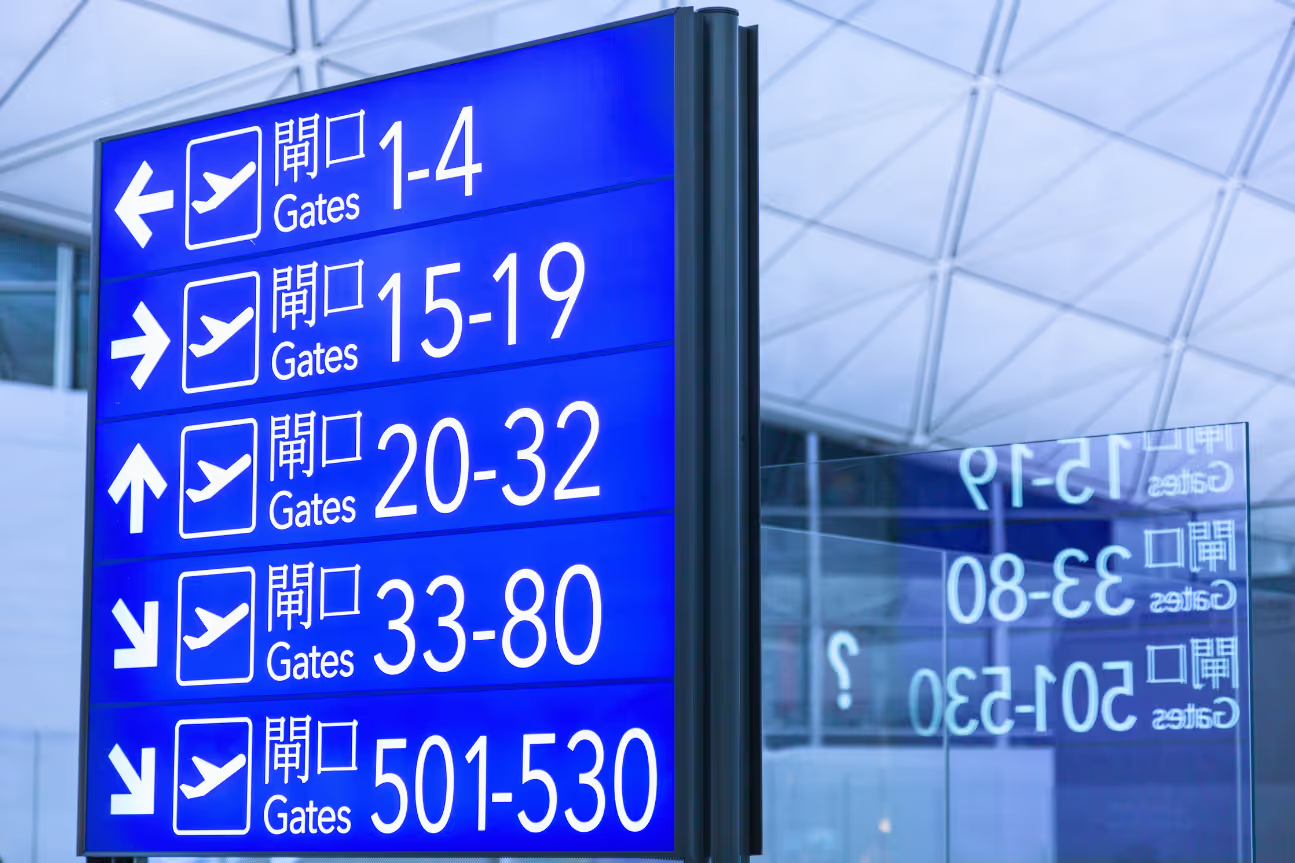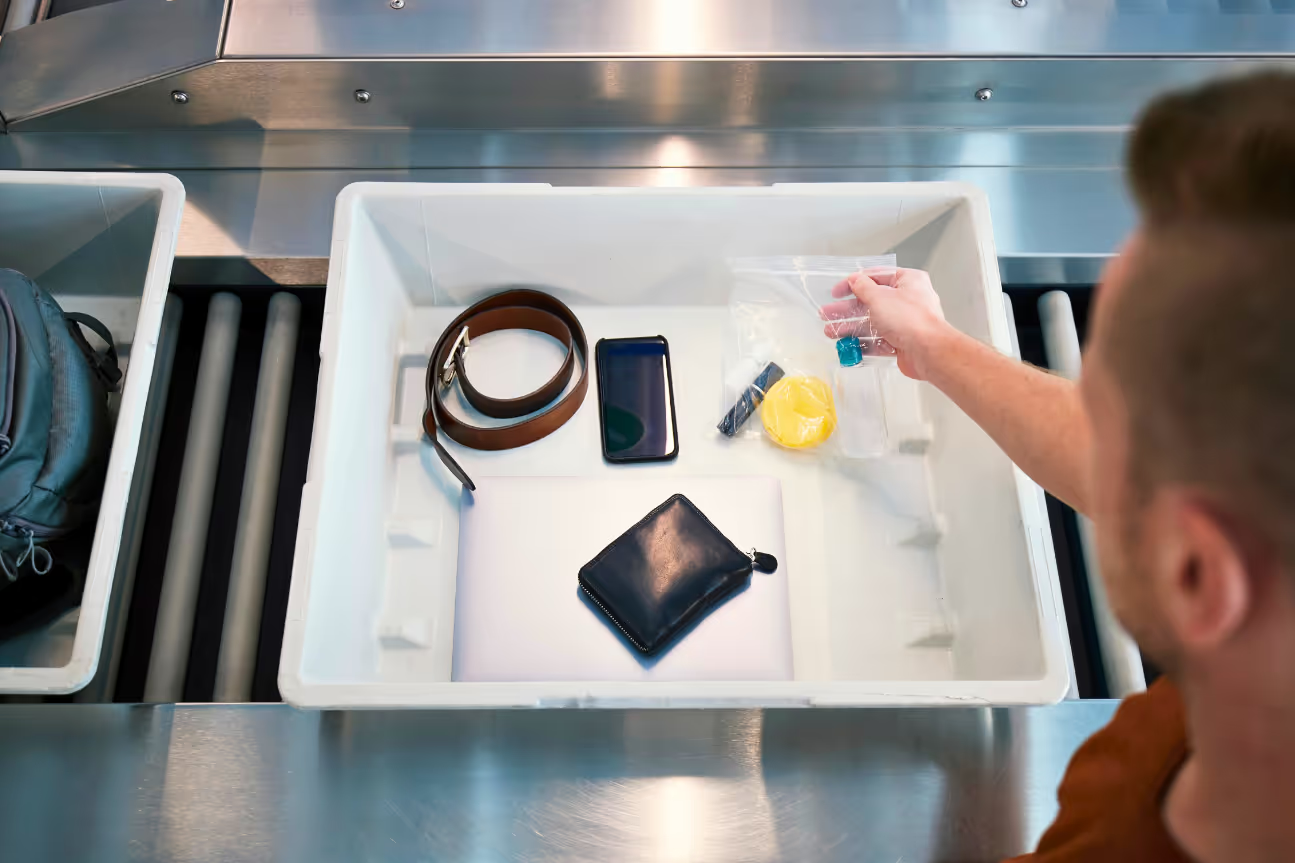In the spirit of summer adventures, we’re spotlighting one traveler who knows how to take off with confidence—no matter the destination.
Whether you're jetting off on vacation or visiting loved ones across the country, accessibility plays a crucial role in making your journey stress-free. Joe Duarte, Co-CEO of InnoCaption and a seasoned traveler, has navigated countless airports and flights while managing hearing loss.
We sat down with Joe to gather his essential tips for flying with confidence—from keeping up with flight changes to ensuring effective communication in the air. Read on for practical strategies that make air travel more accessible for deaf and hard of hearing passengers.

Q: What’s the best way to stay informed about flight updates and gate changes?
A: As someone who has faced the challenges of hearing loss and understands the importance of staying informed, I recommend a few strategies to stay up to date on flight changes and other important information:
By using these tips you can stress less about getting to your flight and have peace of mind knowing you’re not missing any announcements. Opting to download the airline’s app and receive notifications can go a long way in helping travelers with hearing loss have the best flying experience.

Q: Who should you notify about your hearing loss when flying, and what accommodations can you expect?
A: When flying with hearing loss, it's important to proactively disclose that you are deaf or hard of hearing to airport personnel so you receive appropriate accommodations. Here's my approach to this and who I recommend you inform:

Q: How can you stay aware of in-flight announcements if you have hearing loss?
A: Staying informed of important announcements and concerns while in-flight is crucial for travelers with hearing loss. Here's a recommended approach:
By taking these steps and proactively communicating your needs to the flight attendants, you can help make sure that you stay informed of important announcements and concerns while in-flight.
Q: Will I need to remove my hearing aid or cochlear implant at airport security?
A: No, you do not need to remove cochlear implants or hearing aids when going through airport security. Airport security personnel are trained to recognize these devices and will not ask you to remove them during the security screening process.
However, it's a good practice to inform the security officer that you are wearing cochlear implants or hearing aids before you go through the metal detector or undergo additional security procedures. This helps ensure a smooth and efficient screening process and reduces the likelihood of any misunderstandings.
You can also carry a card or documentation from your healthcare provider stating that you have cochlear implants or hearing aids, which you can show to security personnel if needed. This can be helpful in situations where there might be any uncertainty or if you encounter security personnel who are less familiar with these devices.

Can I bring assistive listening devices or hearing aid accessories on board?
Yes, assistive listening devices and hearing aid accessories are typically allowed in your carry-on luggage. Keep them easily accessible during the flight in case you need to adjust or use them.
What if there’s an emergency on the plane?
In the event of an emergency, airline staff are trained to ensure the safety of all passengers, including those with hearing loss. Here's what you can do to stay informed:
What should I do if my hearing aid or cochlear implant malfunctions during the flight?
If your hearing device stops working mid-flight, here are a few steps to take:
Can I use the InnoCaption app while traveling internationally?
Yes! If you're a U.S. resident planning temporary international travel, such as a vacation or business trip, you can continue to use InnoCaption while abroad. Just be sure to notify our support team in advance with your travel dates and destination by emailing support@innocaption.com.
Whether you're planning a weekend getaway or a long-haul flight, Joe’s advice is a powerful reminder that with the right tools and communication strategies, accessible travel is absolutely possible for deaf and hard of hearing individuals.
Want to stay connected during your travels? InnoCaption users can receive real-time captioned calls domestically and temporarily while abroad.
Download the app and travel with confidence—wherever life takes you.

InnoCaption provides real-time captioning technology making phone calls easy and accessible for the deaf and hard of hearing community. Offered at no cost to individuals with hearing loss because we are certified by the FCC. InnoCaption is the only mobile app that offers real-time captioning of phone calls through live stenographers and automated speech recognition software. The choice is yours.
InnoCaption proporciona tecnología de subtitulado en tiempo real que hace que las llamadas telefónicas sean fáciles y accesibles para la comunidad de personas sordas y con problemas de audición. Se ofrece sin coste alguno para las personas con pérdida auditiva porque estamos certificados por la FCC. InnoCaption es la única aplicación móvil que ofrece subtitulación en tiempo real de llamadas telefónicas mediante taquígrafos en directo y software de reconocimiento automático del habla. Usted elige.